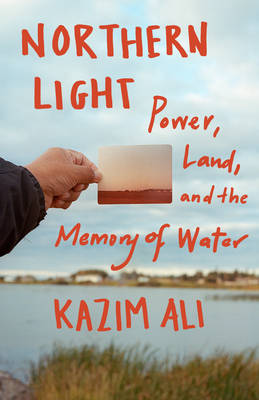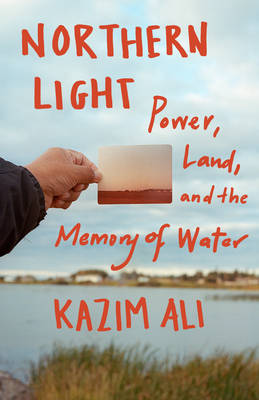
- Afhalen na 1 uur in een winkel met voorraad
- Gratis thuislevering in België vanaf € 30
- Ruim aanbod met 7 miljoen producten
- Afhalen na 1 uur in een winkel met voorraad
- Gratis thuislevering in België vanaf € 30
- Ruim aanbod met 7 miljoen producten
Omschrijving
A Book Riot and Shelf Awareness "Best Book of 2021
"Places do not belong to us. We belong to them."
The child of South Asian migrants, Kazim Ali was born in London, lived as a child in the cities and small towns of Manitoba, and made a life in the United States. As a man passing through disparate homes, he has never felt he belonged to a place. And yet, one day, the celebrated poet and essayist finds himself thinking of the boreal forests and lush waterways of Jenpeg, a community thrown up around the building of a hydroelectric dam on the Nelson River, where he once lived for several years as a child. Does the town still exist, he wonders? Is the dam still operational?
When Ali goes searching, however, he finds not news of Jenpeg, but of the local Pimicikamak community. Facing environmental destruction and broken promises from the Canadian government, they have evicted Manitoba's electric utility from the dam on Cross Lake. In a place where water is an integral part of social and cultural life, the community demands accountability for the harm that the utility has caused.
Troubled, Ali returns north, looking to understand his place in this story and eager to listen. Over the course of a week, he participates in community life, speaks with Elders and community members, and learns about the politics of the dam from Chief Cathy Merrick. He drinks tea with activists, eats corned beef hash with the Chief, and learns about the history of the dam, built on land that was never ceded, and Jenpeg, a town that now exists mostly in his memory. In building relationships with his former neighbors, Ali explores questions of land and power―and in remembering a lost connection to this place, finally finds a home he might belong to.
Specificaties
Betrokkenen
- Auteur(s):
- Uitgeverij:
Inhoud
- Aantal bladzijden:
- 200
- Taal:
- Engels
Eigenschappen
- Productcode (EAN):
- 9781571313829
- Verschijningsdatum:
- 9/03/2021
- Uitvoering:
- Hardcover
- Formaat:
- Genaaid
- Afmetingen:
- 142 mm x 218 mm
- Gewicht:
- 385 g

Alleen bij Standaard Boekhandel
Beoordelingen
We publiceren alleen reviews die voldoen aan de voorwaarden voor reviews. Bekijk onze voorwaarden voor reviews.











